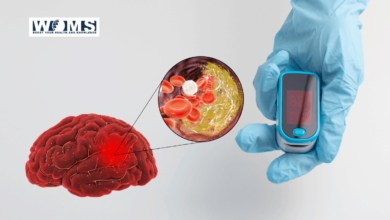Maintaining Motivation to Study Medicine During the Coronavirus Pandemic

The Coronavirus pandemic has upended life as we know it. Social distancing guidelines, face masks, and national and international closures are just some of the measures that have been taken to “flatten the curve.” News stations are sharing the stories of the heroism of doctors and other healthcare workers who are working tirelessly around the clock to save the lives of those affected by the Coronavirus. As an aspiring medical student or resident, you are likely inspired by the heroism of these doctors and healthcare workers and are eager to join their ranks.
However, the Coronavirus pandemic has posed another problem to most medical students trying to reach their goals of becoming a doctor: motivation in the face of adversity. Adhering to stay-at-home quarantine orders and social distancing guidelines may have you feeling in a rut – unmotivated, with no direction and plenty of distraction from your phone, the internet and TV. Here are some high-impact steps you can take to stay motivated towards your medical education goals and foster deep learning and retention of your medical coursework.
Deep focus is all about training your brain. Your brain is, after all, a muscle and it needs to be trained to resist distractions and impulses. For example, how many times have you come across a situation where you are reading and working through dense material only to find your mind wandering, and tempted to check your phone to see if you received any texts or emails? It happens to the best of us. And often, you might even give in. You might think “I will just check to see if my friend texted me back,” or “let me just make sure that I didn’t hear back from so and so through email” – but this is exactly the type of thinking that distracts you from maintaining the deep focus you need to truly internalize the medical material that you are learning.
Your brain has the incredible ability to make neural connections between facts that you learn and synthesize information cohesively – but the issue is that the constant distractions we face – phone, internet, TV – all take away our brain’s ability to process and store information. As long as you continue to give in to these distractions, you deprive your brain the opportunity to learn information deeply and thoroughly. Avoiding these distractions can be extremely difficult, especially in the midst of a pandemic, where we are constantly wondering what state of affairs is with infected COVID-19 patients, as well as hospital staff, shortages, and national and international reactions. However, as a medical student and aspiring doctor – if you want to be part of the solution, so the best reaction you can have is to stay calm and stay committed to your studies.
Below are some tips and tricks to help you maintain the deep focus that is required to truly master medical coursework. While following some of this advice may make you uneasy at first – remember that you are taking steps in the right direction to train your brain for medical success, and to be a force for change in the medical profession, and in the lives of your patients.
1. Limit distraction.
Cell phones, computers, and televisions are just some of the constant distractors that we face on a daily basis. In talking to and coaching medical students for over a decade, we have found that the cell phone is by far the biggest distractor for students. It may sound obvious, or it may not even sound like a big deal, but the constant text messages and emails that come in through your cell phone are keeping you from being the best medical student that you can be.
By keeping your cell phone near you while you studying, you are depriving your brain of forming the varied connections it is able to make, and the deep understanding it is able to achieve. We recommend that you practice keeping your cell phone completely away from you while you study. Put your phone away in a closet in another room or hand it to a relative or friend who lives with you to keep it for the day.
This will accomplish two things – first, you will recognize that you are experiencing an impulse or temptation to check your phone. This is important because oftentimes, we check our phone without even knowing that we are doing it. Second, because your phone will not be near you, you will be forced to calm your mind and train your brain to not act on that impulse – a practice that you will be able to build and strengthen over time – and will serve you well as you continue your medical education.
2. Engage in active learning, not passive learning.
Be conscious of the resources that you are using to learn your medical coursework. In working with medical students, we often find that while learning through videos is a great resource, it encourages passive learning. Students often feel accomplished after watching a video explanation and are under the impression that they just “learned” the material that they saw through video.
But this is not always the case. Test your knowledge – try closing your eyes and re-teaching the material to yourself out loud. Be honest with yourself, and check to see if you can really re-teach and recite all of the intricacies of what you just saw on the video. If you can’t, you did not actively grasp the material, and we recommend you either re-watch it, taking the time to actively absorb the material this time, or consult a textbook that has the same material.
Textbooks are an excellent resource because they allow you to see words on a page and give you the time to read and deeply internalize. We recommend that you take the time to pause after reading a paragraph of dense material and write down on pen and paper what you just learned.
This process allows you to paraphrase what you learned in your own words and ensures that you are truly learning and internalizing as you read and work through dense material. Be active in your learning and take charge to ensure that you are making the most of your study time and the resources that are in front of you. You don’t want to go through hoards of material just to realize that you did not really absorb anything from it.
3. Implement Effective Study Methods and Develop a Study Plan
Maintaining your motivation and maximizing efficiency requires a well-structured study plan and the adoption of effective study techniques. This should be tailored to your learning preferences to enhance comprehension and improve memory retention. Your study methods resonate with your unique learning approach, promoting a more profound grasp and recall of the subject matter.
Integrating practical study resources into your routine is essential, especially when preparing for crucial examinations. One such resource is the question bank for the United States Medical Licensing Examination. This resource, particularly the inclusion of USMLE questions, can serve as a practical and beneficial tool. It allows you to familiarize yourself with the examination format and actively apply your accumulated knowledge. This hands-on practice is a vital element of your exam preparation strategy.
Remember, a successful study plan is comprehensive, involving more than practice questions. Attend lectures, read textbooks, participate in group discussions, and consider explaining a concept to a peer to reinforce your understanding.
Track your progress and refine your plan to maximize your learning efficiency. By adopting this strategic approach, you can keep your motivation strong and set yourself up for success in your exams and future medical careers.
4. Memorize and synthesize information as you learn.
As you read and work through dense material, consciously take the time to pause and synthesize what you just learned. Close your eyes, and try to recite what you just read in the last three paragraphs – can you do it? Take the time to ensure that you are actively learning as you go.
In addition to active learning, memorization is one of the biggest challenges medical students face, specifically because of the sheer amount of material an aspiring doctor needs to memorize for exams, boards, and for practice. Don’t stress about memorizing information the first time around – when you first learn something, just take the time to just learn it thoroughly.
But as you need to memorize more and more information, and assuming you have the time, we recommend flashcards and spaced repetition learning. This technique will allow you to re-introduce concepts to your brain in periodic intervals so that your brain sees that information over time again and again – ensuring that it becomes part of your long-term memory.
Our advice to you is to stay determined and focused. The Coronavirus pandemic is indeed overwhelming, but don’t let it distract you from your long-term goals of being a physician. The world and the medical profession needs you more than ever before.



